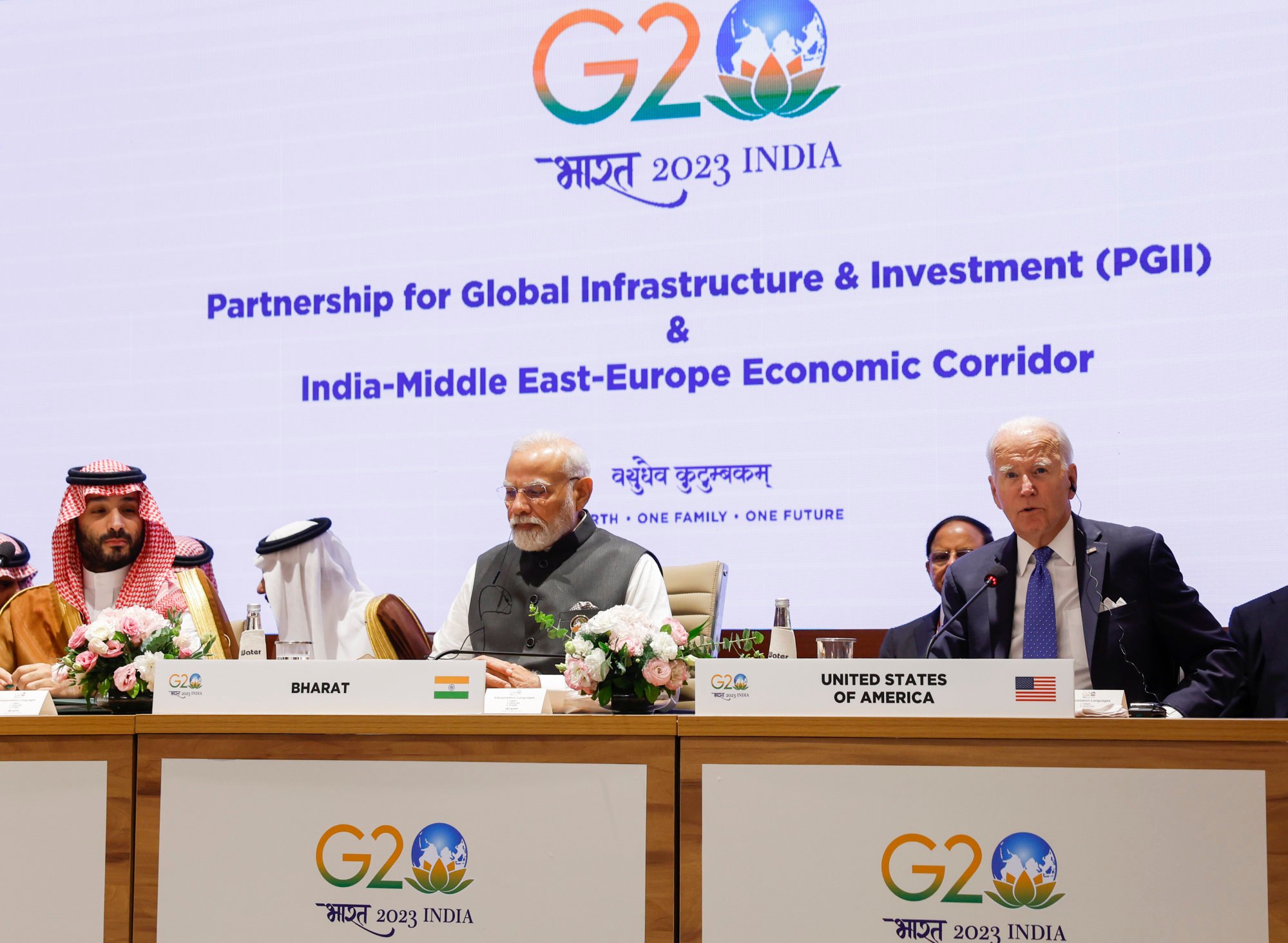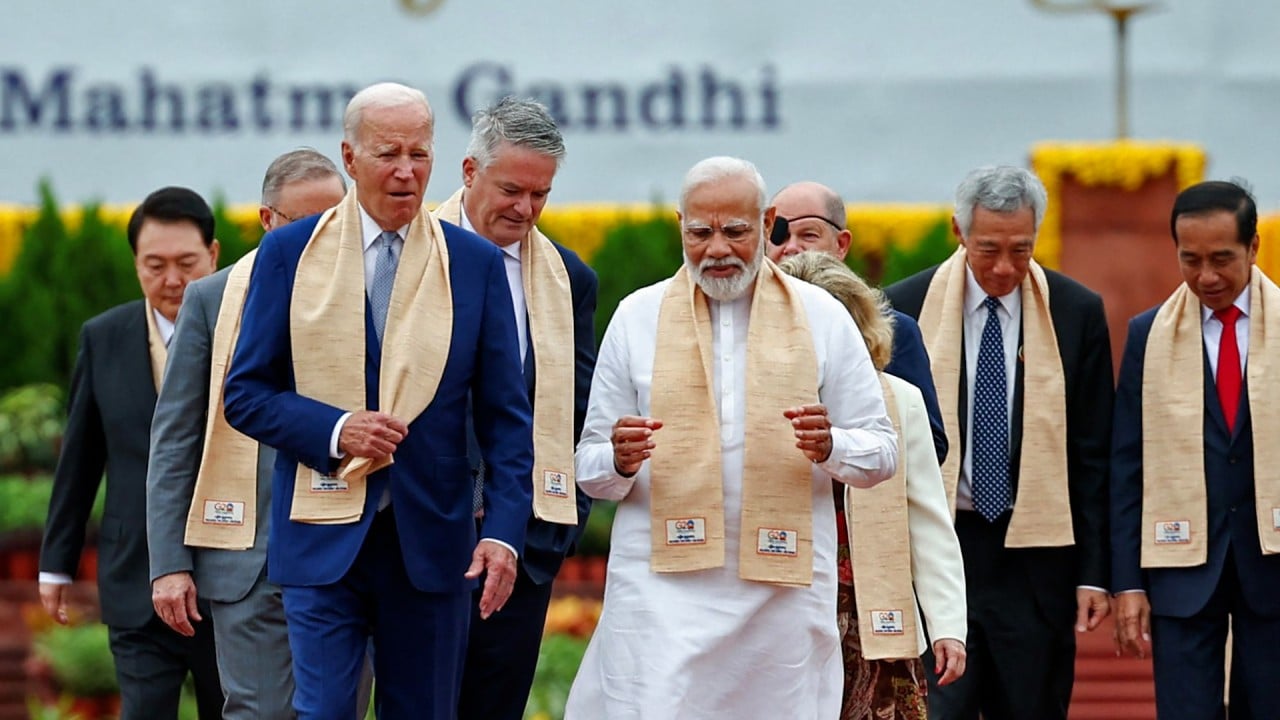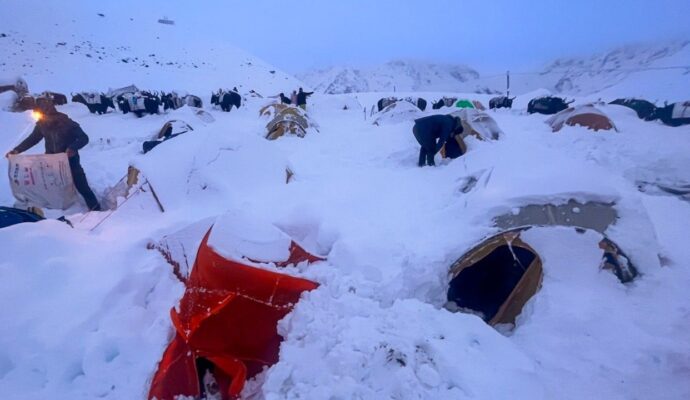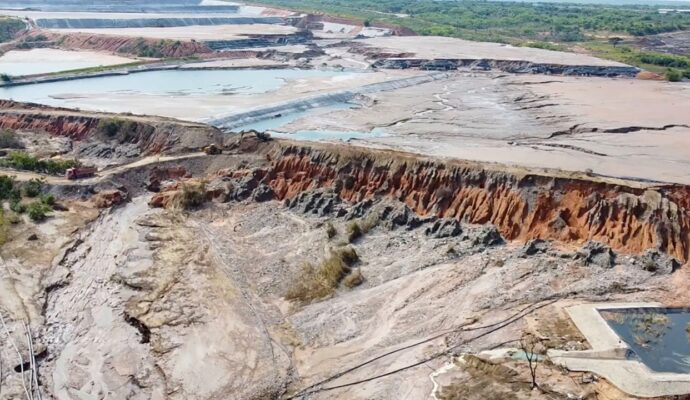
Advertisement
B3W focused on “human infrastructure”, such as health security and gender equality, while the new project builds tangible ones, such as electricity cables, hydrogen pipelines and high-speed data cables.
According to Josef Gregory Mahoney, politics professor at East China Normal University in Shanghai, the lack of substantial results from previous proposals, like B3W, hints at the ideological – as opposed to practical – nature of the scheme.
“No one is naive enough to believe that this new plan is anything more than a campaign talking point, one that supports Biden’s re-election, not unlike his grandiose rhetoric at the recent G20,” Mahoney said, adding that it promoted an “anti-[belt and road] green fantasy that US policymakers can’t even deliver at home, let alone overseas”.
Threat of global infrastructure wars as nations seek to compete with China
Threat of global infrastructure wars as nations seek to compete with China
Yet to detail its strategy, Washington said its project could help “turn the temperature down” on “turbulence and insecurity” coming out of the Middle East.
Advertisement
Andy Mok, a senior research fellow at the Centre for China and Globalisation, a Beijing-based think tank, said that while easing tensions in the region may be a worthwhile goal, it was unlikely to be realised.
“Leaning heavily on economic solutions without the foundational values of respect for each country’s development models and choices may be problematic,” Mok said.
Advertisement
“Less-coordinated initiatives”, rather than “well-charted strategies”, highlighted Washington’s “impulsive reaction” to China’s diplomatic capacities, he said.
According to the Green Finance & Development Centre, a Fudan University think tank, cumulative Belt and Road Initiative investment exceeded US$1 trillion this year, with more than 100 deals worth US$43.3 billion signed in the first half of this year – a 23.7 per cent year-on-year increase.
According to Zoon Ahmed Khan, a foreign-policy analyst and research fellow at Tsinghua University’s Belt and Road Strategy Institute, the US-led infrastructure plans have been “retaliatory, divisive and motive-driven”, and their proposition to serve as a positive influence “lacks precedent”.
Advertisement
“The caveat for Washington is a limited track record in building advanced infrastructure within the US as well as overseas,” Khan said, adding that the belt and road plan had, in contrast, invested in traditional projects such as ports, roads, dams, railways and power plants.
“Given China’s growing stakes as a threat to the US’ strategic influence in the region, the willingness of Middle Eastern countries to welcome China’s role in development, security and regional cooperation is seen as a threat by policymakers in Washington,” Khan said.
She said it was unlikely that China would be outbid as the primary provider of traditional infrastructure to developing countries.
Advertisement


